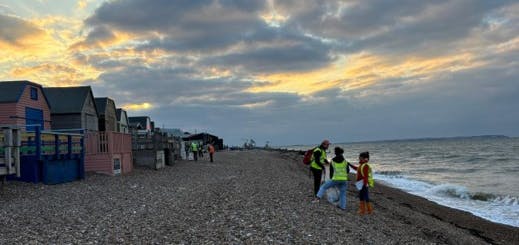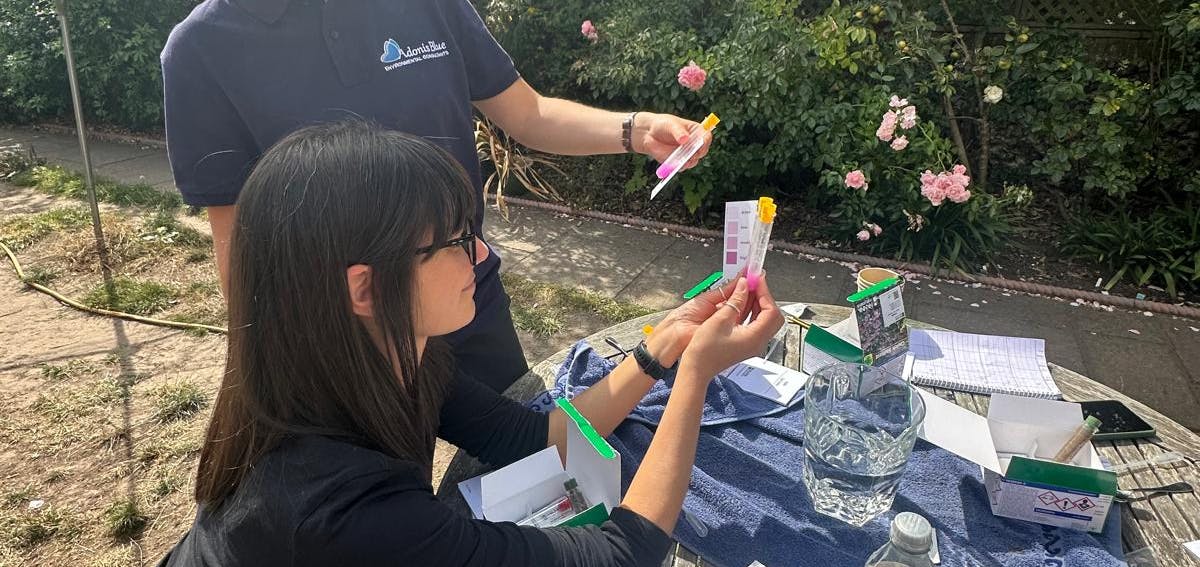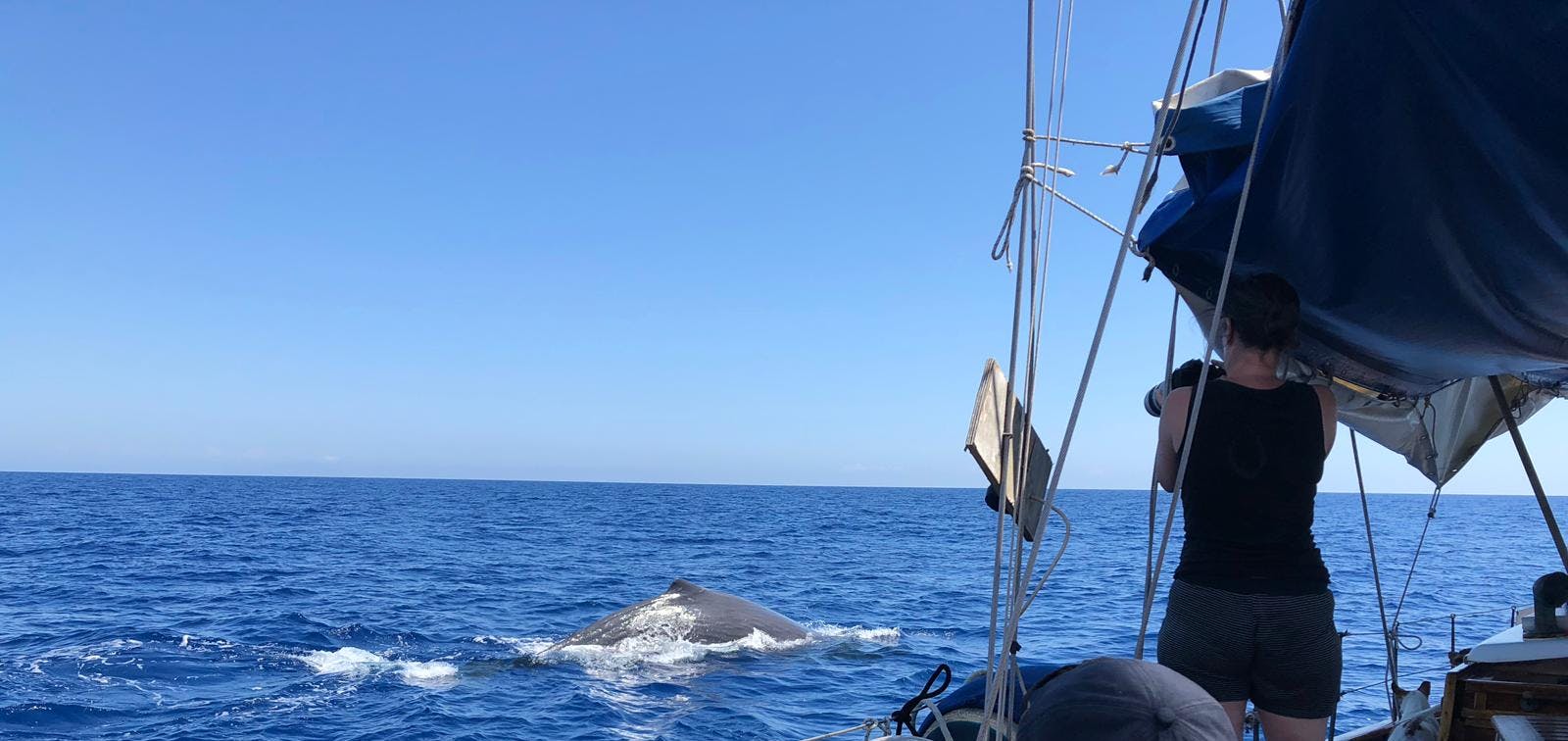On Tuesday the 24th September, Linn and Emmie, the 2024 Coastal Explorer Interns hosted a beach clean in Whitstable. This got them thinking about how big of an impact this might actually have...
But first, some details about the beach clean:
1. Whitstable Beach Clean
Every year – the Marine Conservation Society runs the Great British Beach Clean, a week-long citizen science event that encourages people across the UK to organize and participate in beach cleans.
This year, the Great British Beach Clean ran between the 20th – 29th of September, and Adonis Blue Environmental Consultants showed up! On the 24th of September Emmie and Linn teamed up with a great group of volunteers to clean Long Beach in Whitstable.
Who took part?
- Whitstable Maritime Charity brought their crew of loyal volunteers and contributed their local knowledge
- Canterbury City Council kindly provided the litter pickers, bin rings and collected all the rubbish we had picked up
- Shoresearch volunteers also joined in on this beach clean
- Shoutout to all the other wavemakers who showed up and helped keep our coast clean!
With your help we can now #seathechange!
Breaking it down - the findings

So, what did we find? Here is a summary of the litter found on Long Beach. A whopping 630 items!
- Plastic/polystyrene – 66.98%
- Wood (machined) – 11.59%
- Metal – 6.51%
- Cloth – 3.33%
- Paper/cardboard – 3.02%
- Pottery/ceramics – 3.02%
- Rubber – 2.70%
- Glass – 1.75%
- Sanitary – 0.95%
- Medical – 0.16%
Including some funky finds, such as a Komodo dragon! Live! (Just kidding – a plastic toy Komodo dragon) And... two oysters – with knife shards in them (looks like someone wanted a cheeky snack).
Where does it all come from?
Some of the major sources of the litter we found included general public littering, shipping, and the fishing industry. However, the vast majority was non-sourced. You can check out this Marine Conservation Society resource for further information about litter sources. You can also help understand the source of litter by participating in a Source to Sea: Litter Quest.
Why did we do it?
‘Why participate in a Beach Clean?’ you may ask. Well, first and foremost you will help keep our oceans clean and healthy. Picking up glass and plastics decreases the risk of harm to humans or wildlife as they might ingest or entangle themselves in this litter. By picking up visible pieces of plastics and other material, it prevents their breakdown into smaller fragments, such as microplastics. What you might not know, is all those pieces of litter recorded on a beach clean will be used to create real change. Interested? Keep reading...
2. The impact of a beach clean
The impact of a singular beach clean can feel like a drop in the ocean when we think about how much plastic ends up on our beaches globally. With 400 million tonnes of plastic waste being produced every day, and of that, 8 million pieces of plastic entering the ocean, it’s easy to feel a bit helpless. But, data being collected by you, the public, is suggesting each beach clean IS making an impact!
The Marine Conservation Society (MCS) hosts a national beach cleaning and litter survey programme called Beachwatch. This means that beach cleans aren’t just about volunteers removing litter from beaches, they’re also a vital source data, where each item found is recorded and submitted to the MCS.
Why is it important to collect data on beach cleans?
- It helps track common items found on beaches
- It helps trace the source of pollutants
- Data can be used to lobby governments for legislative change
- Data can also drive campaigns

How is it collected?
A beach clean will take place over a 100m stretch (for comparability between beach clean sites). Each item of litter found within this area is categorised and recorded according to what it’s made from or its source, e.g. plastic/polystyrene, rubber, cloth, paper/cardboard, wood (machined), metal, glass, pottery/ceramics, sanitary, medical and pollutants.
How is it analysed?
Once data is uploaded by organisers, it is combined onto the national database, which has been receiving data since 1994. From here it is reviewed and validated, after which trends and patterns can be analysed using this long-term dataset. This means common litter items or sources can be identified.
What’s the impact?
After analysing the data, the results can be used by policy and advisory teams in briefings with governments, parliament and politicians, to help lobby for legislative change. Government may also put out public consultations asking for more evidence on litter pollution. The MCS policy Team can respond to this using the Beachwatch data, after which government can then implement policy that considers these findings. It doesn’t stop there though! Data is continues to be collected and analysed to measure the impact of policy changes.
Other organisations, such as Surfers Against Sewage, have organised #returntooffender campaigns. This encourages the public to digitally share and tag photos of branded plastic pollution, challenging polluting companies. Data collected by the public in the 2019 campaign showed that Coke and Pepsico made up over 25% of packaging pollution on UK beaches.
These organisations show how citizen science data helps drive legislative and social change.

3. The results are in
Beach Watch Data 2023
To understand a bit more about the impact of each beach clean on a larger scale, we can look at the MCS 2023 Beachwatch summary. These numbers help highlight the work MCS does:
- 14,271 volunteers took part in beach cleans throughout 2023, submitting over 1000 surveys.
- This equated to 17,208kgs of litter – all of which contributed valuable data to the MCS national dataset.
- Compared to 2022, a 7% increase in drinks-related litter was recorded in 2023 across English beaches. However, the MCS continues to campaign for a Deposit Return Scheme across the UK, which the government aims to implement in 2027. Although this is a step in the right direction, this will not include glass, and is still 3 years away from being introduced (you can find out more here).
- In 2023, 79% of beaches surveyed in England recorded sewage-related items, such as wet wipes or sanitary items. The MCS has contributed to work that has prompted the UK Government to include all storm overflows, including in all coastal water and estuarine areas, into the Storm Overflows Discharge Reduction Plan. This could help manage sewage discharge into the natural environment (you can find out more here).
- Plastic cutlery, trays and straws were recorded on 5% fewer beaches than in 2022. This could be linked to the bans introduced across 2022-2023.
- A 14% year on year decrease in cotton bud sticks has also been recorded – this helps show that policies banning single use plastics are having a positive impact.
These encouraging numbers help underline the positive impact that each individual beach clean is having on a national scale!

4. Global Impact
But what impact is happening on a global scale?
Individuals all over the world are participating in beach cleans, resulting in a global effort producing big results. The Ocean Conservancy has released a report with some impressive statistics showcasing the combined impact that each beach clean has:
- 3,612,215 kg of litter was collected globally in 2023 – this is equivalent to the weight of about 6.8 million Olympic gold medals!
- Across the year, 486,045 volunteers helped clean waterways and coastlines.
- In Europe alone, 31,085 food wrappers were collected – and that’s just one category of litter.
This data helps demonstrate the severity of plastic pollution to global organisations such as the United Nations Environmental Programme. This can then drive legislative change on a global scale, For example, at the UN Environmental Assembly in 2022, 175 nations agreed to jointly write a treaty that will tackle plastic production, and the impact is has on the environment and human bodies.
5. Inspired?
It is clear from the numbers above that beach cleans might make more of a difference than we would think! Although there is still much to do, and it is acknowledged that this relies heavily on volunteer’s time and effort, beach cleans are crucial for data collection and driving legislative change on a national and global scale.
The positive benefits of a beach clean don’t stop at just picking up litter. It is an excellent opportunity to educate the wider community about the longevity of plastic, discuss how litter ends up in our environment and talk about safe waste disposal. This outreach can be done in all areas of the community, ranging from schools to community groups. As a result, it brings different people together and can be a positive wellbeing activity, helping people get outside and talk with each other. Finally, removing each piece of litter will help contribute to keeping the environment cleaner, prettier and healthier!

Get involved
If you’re feeling inspired, it’s very easy and possible to join a beach clean - or even organise your own! See some of the resources, guides and tips below and get litter picking!
MCS hosts an annual Great British Beach Clean Week, there’s an especially high number of beach clean opportunities on their page. Look on the MCS website for their easy step by step guide to organise your own beach clean.
Surfers Against Sewage also provides resources for the public to host beach cleans as part of their Million Mile Clean Initiative. This provides the opportunity to get involved in The Brand Audit project as well.
Make sure you contact your local council, or any relevant private landowners if you’re organising an event on their land. For Canterbury City Council, please see their page for organising beach cleans.
Make sure you’re doing your beach clean in a safe environment, you have considered and prepared for any potential risks, and enjoy!





